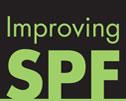As I mentioned in my June 2010 column, the new health care law contains an onerous tax reporting requirement that takes effect next year. Beginning in 2012, all businesses will be required to issue 1099 tax forms to all vendors (individuals and corporations) from whom they procure more than $600 in goods and services during the year.
The measure, which certainly will increase paperwork and decrease productivity, has business groups infuriated. As a result, there has been movement in Congress to repeal it.
In September 2010, Sens. Mike Johanns (R-Neb.) and Bill Nelson (D-Fla.) each tried to repeal the measure, but both failed. The issue came up again in November 2010 when Sen. Max Baucus (D-Mont.), chairman of the Senate Finance Committee, tried to pass a repeal with the support of Johanns. Once more, the effort failed.
The measure was included in the health care law in the hopes of offsetting the law's staggering costs. According to the provision's proponents, the 1099 reporting requirement will raise about $17 billion during the next 10 years.
However, with the beating the Democrats took in the November 2010 midterm elections, repeal of the 1099 requirement could gain traction this year.
"We are pleased to see our leaders on both sides of the aisle are willing to do the right thing for our nation's job creators," says Dan Danner, president and chief executive officer of the National Federation of Independent Business. "Small business should be the one thing that unifies our leaders as we work to come out of these difficult economic times."
President Obama has said he will consider supporting repeal of the measure to help the small-business community.
"The 1099 provision appears to be too burdensome for small businesses," Obama says. "It's probably counterproductive. That's something we should take a look at."
Ambika Puniani Bailey is editor of Professional Roofing and NRCA's senior director of communications.



